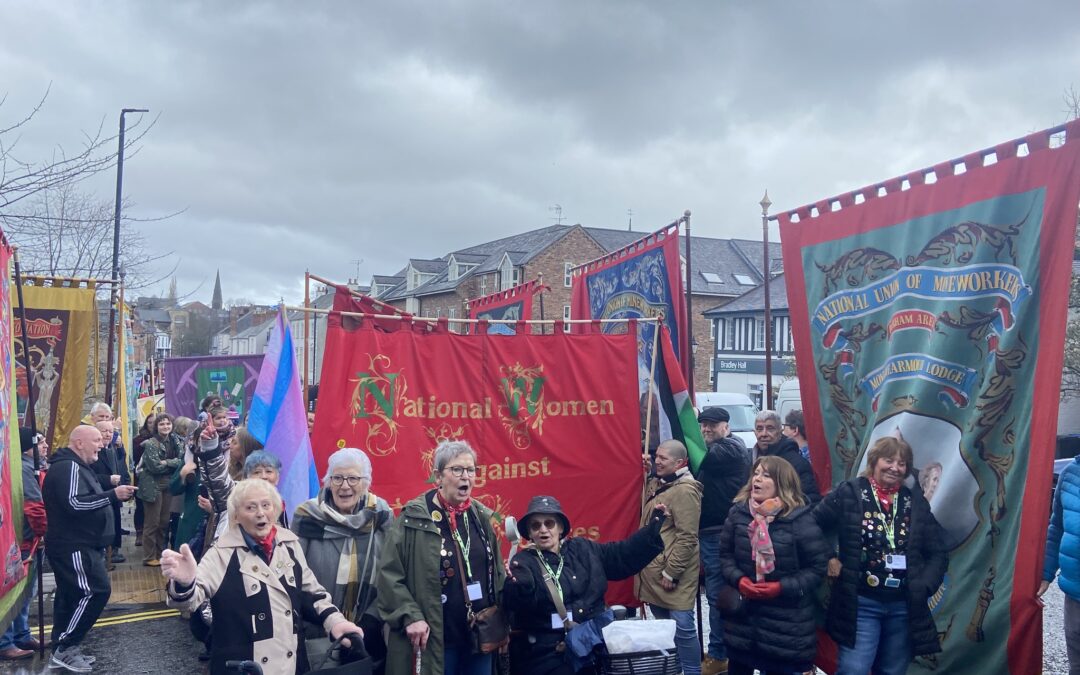A Sunderland councillor turned media darling this week, after sharing her experiences of the 1984 miners’ strike to mark its 40th anniversary.
Cllr Juliana Heron, councillor for Houghton Ward, played a leading role in the Eppleton Miners’ Wives Support Group, which had a vital role in sustaining Wearside miners during the 1984 strike.
And 40 years on, she has had a key role in events to mark the anniversary of the strike.
On the 6 March 1984, the National Coal Board announced that 20 collieries would close, with the loss of 20,000 miners’ jobs. It led to a national strike which lasted 12 months, creating deep divisions in communities and leading to violence on the picket lines.
The wives of those striking miners played an important role in keeping the men going through that tough time, providing hot meals and food parcels, as well as taking part in marches.
“We made sure the miners were being fed and made sure that all of the wives were supported,” said Cllr Heron. “We were there for each other and we became one big family in the end.
“We ran a café providing proper meals, a main course and dessert. It was a lot of meals, one week we served 1,350 meals.
“I was involved in food parcels. We had found out that single miners weren’t receiving any benefits at all, so with the backing of the NUM, we provided them with food parcels every week to make sure that they could make meals.”
And to remember the sacrifices of all those involved in the strikes, thousands took to the streets of Durham at the weekend (Saturday 2 March) to pay tribute to the proud mining heritage of the Coalfield.
Cllr Heron helped organise the events, which included a pop-up shop in the week leading up to the march and saw people come from around the world to show their camaraderie.
“We started out planning for a small event in Durham to mark the 40th anniversary of the strike – it ended up becoming absolutely enormous,” said Cllr Heron.
“We had people from all over come to the event. There were American ex-miners, people from Holland, France and Germany, as well as from across the UK. It was amazing.
“We started at Durham Cathedral, walked down to the Madeline steps and ended up at Dunelm House. And when we got there, the Durham Miners banners gave us a guard of honour going into the building, it was absolutely fantastic, I had shivers.”
Cllr Heron is passionate about keeping the memory of those times alive and has recently appeared on The One Show, BBC News and Politics North recounting her experiences.
She said: “We’re all getting older, and yes we tell our stories all the time, but the miners’ strike must never be forgotten because we’re still living with the consequences.
“There was nothing put in place in any of colliery villages or across Sunderland to replace what was lost when the pits and other industries closed.
“Our communities are still suffering to this day and we mustn’t let people forget that the start of this was the closure of the pits.”

